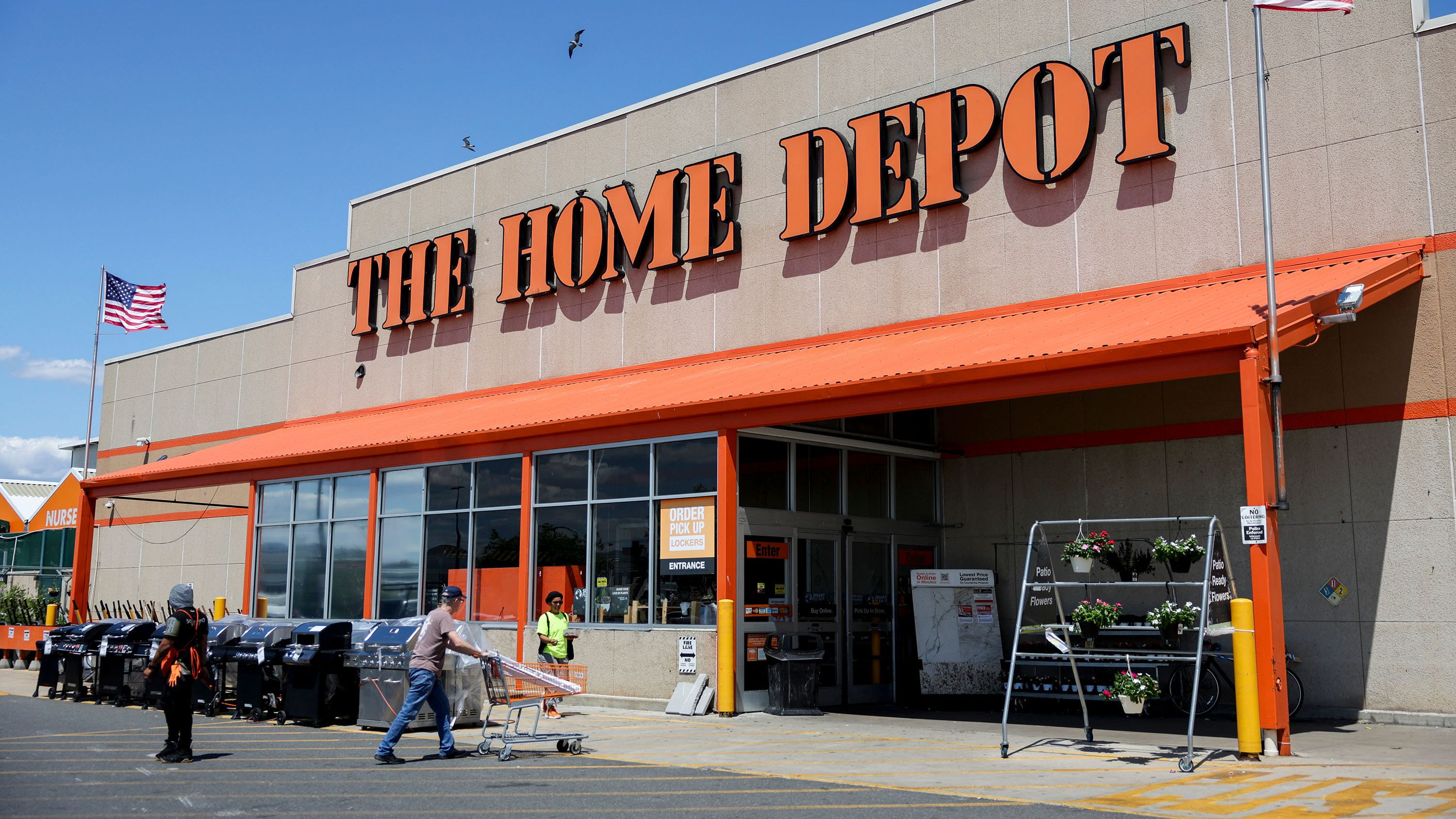
Home Depot (NYSE:HD) reported earnings per share (EPS) of $3.13, surpassing the estimated $3.04.
The company’s revenue reached $39.7 billion, exceeding the estimated $39.25 billion.
Despite positive results, Home Depot issued weaker guidance, causing volatile share movements.
Home Depot (NYSE:HD) is a leading home improvement retailer, offering a wide range of products and services for home renovation and construction. It competes with other major retailers like Lowe’s and Menards. On February 25, 2025, Home Depot reported earnings per share (EPS) of $3.13, surpassing the estimated $3.04, and revenue of $39.7 billion, exceeding the estimated $39.25 billion.
The company’s strong financial performance is evident in its earnings surprise of 2.96% for the quarter, as highlighted by Jenny Horne. This marks an increase from the $2.82 per share reported in the same quarter last year. Home Depot has consistently outperformed consensus EPS estimates over the past four quarters, demonstrating its ability to deliver strong results.
In addition to impressive earnings, Home Depot’s revenue of $39.7 billion for the quarter ending January 2025 exceeded the Zacks Consensus Estimate by 1.44%. This represents a significant increase from the $34.79 billion reported a year ago. The company has surpassed consensus revenue estimates in three of the last four quarters, showcasing its robust financial performance and growth in the Zacks Retail – Home Furnishings industry.
Despite the positive results, Home Depot’s guidance was weaker than anticipated, contributing to volatile share movements. CEO Ted Decker noted that while there is “greater engagement” in home improvement spending, higher interest rates have led to delays in major renovation projects. CFO Richard McPhail remains optimistic, suggesting that demand will return as higher rates become the “new normal.”
Home Depot’s financial metrics provide further insight into its performance. The company has a price-to-earnings (P/E) ratio of approximately 25.94, indicating the price investors are willing to pay for each dollar of earnings. Its debt-to-equity ratio is notably high at approximately 10.95, reflecting a significant reliance on debt financing. Despite this, the current ratio of around 1.13 suggests good short-term financial health.

